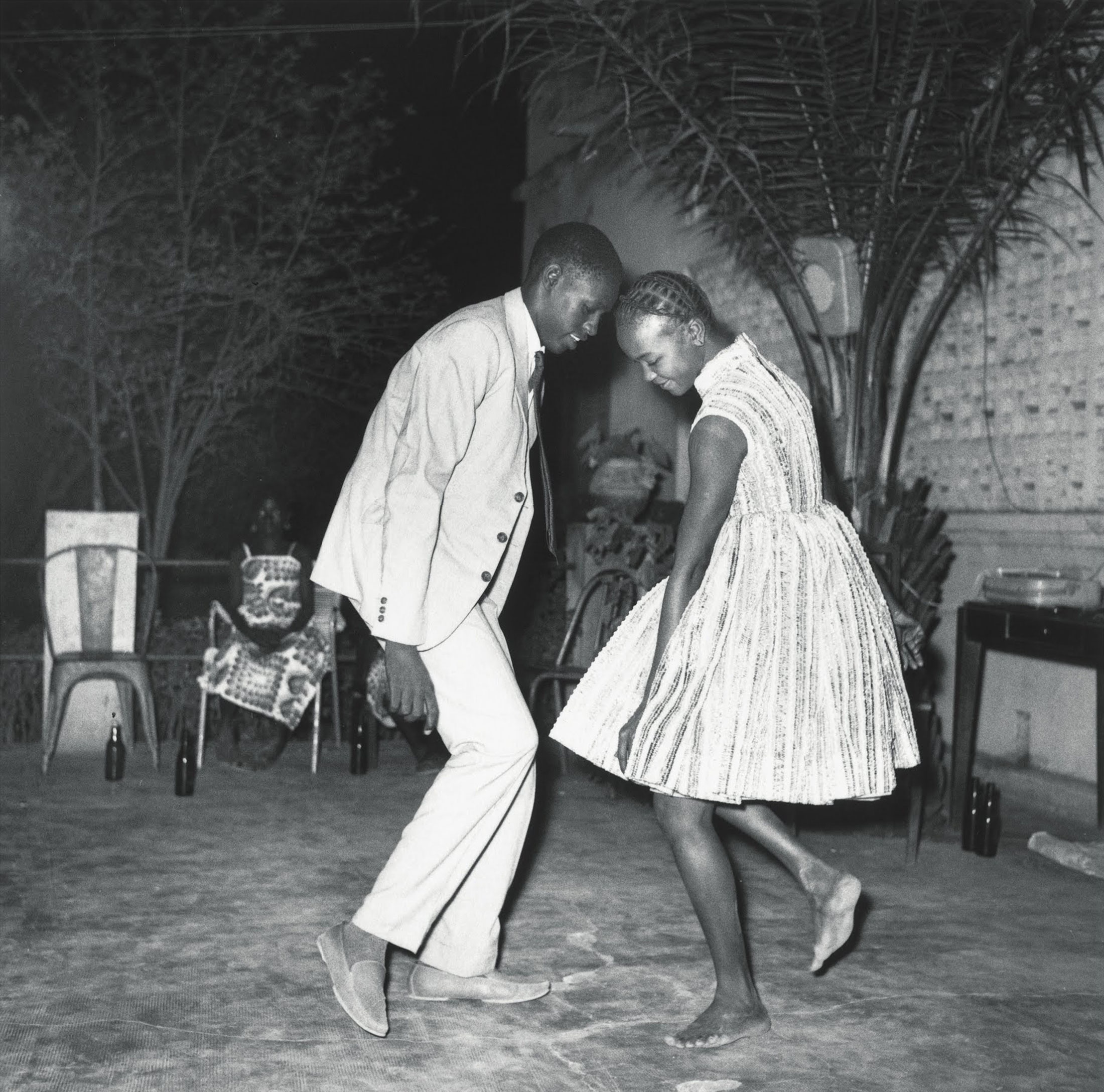Malick Sidibé

While Sidibe preferred working in studio – with the time it allowed for careful compositions and attention to pose – it is his spontaneous photographs of bodies in motion that remain among his most compelling. “When young people dance,” the photographer said of such pictures, “they’re spellbound by the music. In that atmosphere, people didn’t pay any attention to me anymore.” In Christmas Eve, a couple dance alone in a courtyard. They incline their heads towards one another with sweet intimacy, looking down to their feet – his in loafers, hers bare – as they move to the rhythm of a twist. Their clothing, being Western in style and aspiration, resists established propriety. In the Parisienne fashion then in vogue, she wears a full-skirt and he a tailored, cream-coloured suit. The night is warm. A turntable plays under the palm tree. The couple smile – the photographer forgotten.
b.1936, Soloba; d.2016, Bamako
Three years after Malick Sidibe bought his first camera in 1957 – a Kodak Brownie Flash – his country gained independence from French colonial rule. He was perfectly positioned in time and place to document the Malian renaissance that followed, with its flourishing counter-culture and revolutionary verve. In 1962, Sidibe opened Studio Malick, where he photographed paying clients against a plain white wall. His studio portraits are more often rough-edged, with worn linoleum floor, mismatched curtains and a backdrop too small for more ambitious arrangements (some of his photographs include motorbikes as props). Parallel to these photographs are those Sidibe took of his contemporaries out on the town. “Music liberated African youth from the taboo of being with a woman,” Sidibe said. “They were able to get close to each other, which is why I was always invited to parties. I had to go in order to record these moments – when a young man could dance with a young woman.” Such freedom, if not strictly forbidden, was an affront to an otherwise conservative Muslim society. Even after the military coup of 1968, and in violation of curfews, the parties continued into the night. Sidibe stayed up late to capture them.